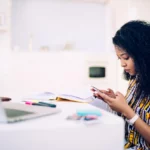Communicating effectively involves not only speaking well, but also listening well. Below are a few tips on how to listen more effectively to improve your ability to better communicate:
Be attentive: Facing the speaker and maintaining eye contact are ways to show you are paying attention to what is being said. By attending to what the other person is saying means that you are being present and giving your attention to the person speaking. Practice blocking out distractions like movement, other noises, your own thoughts and/or habits of the speaker. By looking at and observing the speaker, not only will the speaker feel “attended to,” but you will also learn more about what is really important to him or her.
Listen without judging or jumping to conclusions: Keep your tone sincere and nonjudgmental when you listen. Remember, you don’t really know what a person is thinking or feeling until he or she actually expresses what they are thinking. Don’t try to rush the conversation by finishing what the other person is saying because you believe you know what they are going to say. Think only about what the other person is saying. Remember that you are not listening if you are thinking about what you are going to say next.
Ask questions to ensure understanding and provide speaker regular feedback: The best time to ask a clarifying question and/or provide feedback that you are listening is when the speaker pauses. Questions should be worded to help confirm you understand what is being expressed, and not to redirect the conversation. If you notice your question did lead the person astray, take responsibility to get the conversation back on track. General feedback can be both verbal and nonverbal. Empathy is an effective verbal response, such as saying, “What a stressful time.” Nonverbal feedback, such as a head nod, smile, or a well-timed “hmmmm” can be just as powerful.
Effective listening takes patience and practice. Happy practicing and listening!















